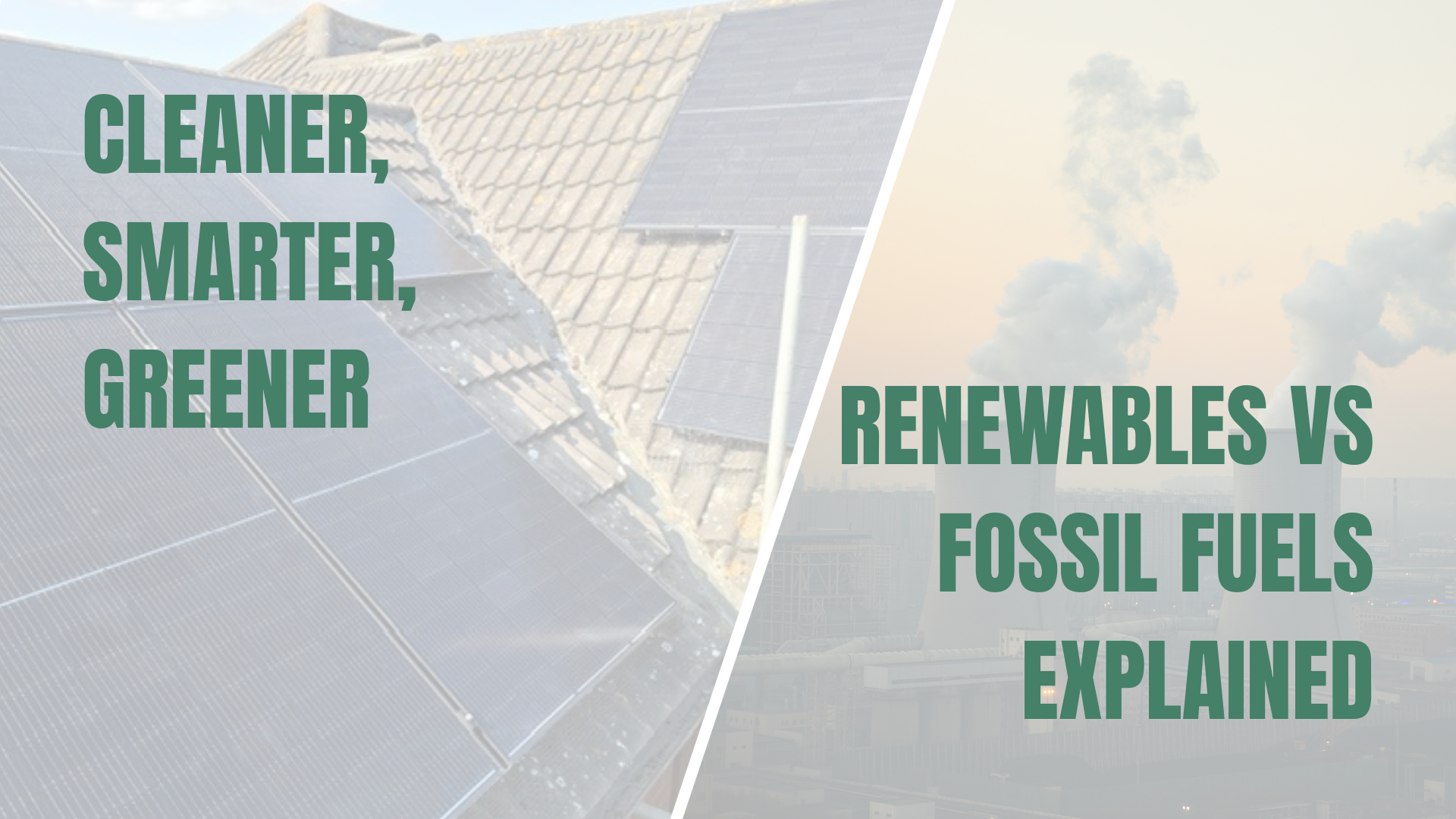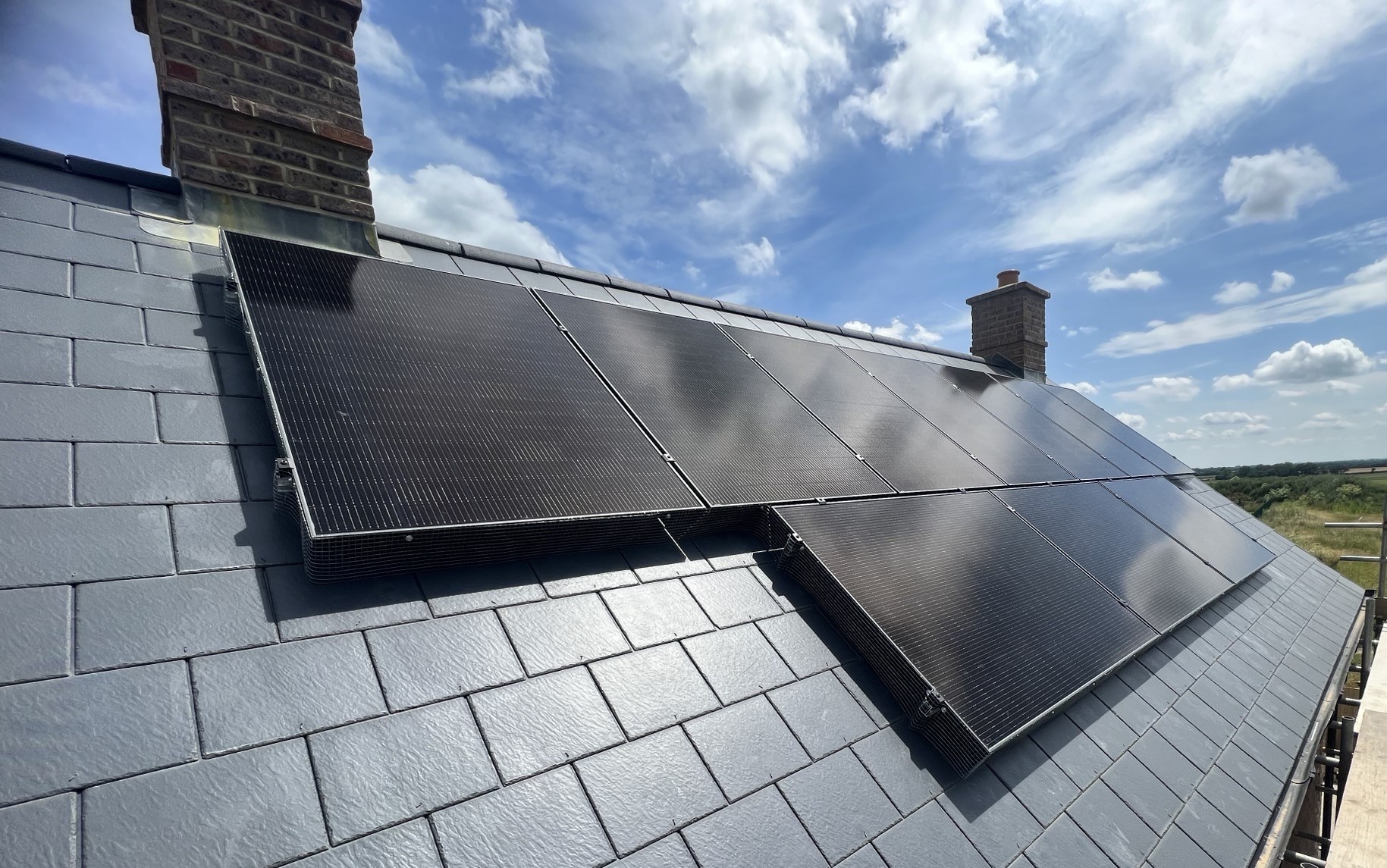The UK is in the midst of a major energy transformation. More and more households and businesses are seeking cleaner alternatives to fossil fuel generated energy. However, one big question remains: How do renewable energy sources really stack up against fossil fuels?
At SolarTherm UK, we’re passionate about giving you the facts so you can make informed decisions about your energy future. So let’s break this down.
What Are Fossil Fuels?
Coal, oil and natural gas are ancient energy sources formed over millions of years from decomposed plants and animals. They’ve been powering industries, transport and homes since the industrial revolution in the 1880s. The problem with fossil fuels is they are not renewable – once they’re gone, they’re gone forever. While new sources of fossil fuels are found all the time, it is currently estimated the stores will deplete as soon as 2052 for oil, 2060 for natural gas and 2090 for coal.
Burning fossil fuels is a major contributor to air pollution and climate change, releasing high levels of carbon dioxide (CO₂) into the atmosphere. Carbon dioxide traps heat from the sun causing global warming. Other gases released cause air pollution which is bad for our health and oil leaks and fracking can pollute the ground and water, causing harm to wildlife.
Mining and drilling for fossil fuels can also be dangerous, there are many reports of accidents in coal mines and on oil rigs that cause serious injury and in some cases death to workers. Transporting oil can also cause issues, especially with oil spills, one of the worst being the BP Deepwater Horizon in 2010, which saw 206 million gallons of oil spilt across the Gulf of Mexico, killing 11 workers and injuring 17 others, not to mention the damage it caused to local wildlife and sea animals. 15 years on, local residents are still feeling the damage caused by the oil spill.
What Are Renewable Energy Sources?
Renewable energy covers electricity generated by wind, solar, water or biomass. Renewables are naturally replenished and sustainable and won’t run out. Renewable sourced energy is low emissions, producing no carbon emissions while generating electricity, and the more we can generate in the UK, the less we will rely on expensive imports of energy from foreign sources so energy bills will stabilise and possibly even reduce.
Different sources of renewable energy work in different weather conditions. In the UK wind, solar and hydro power work successfully. Being an island, the latest form of renewable energy – tidal energy – is a great place for research and development and one such project has now been running successfully off the coast of Scotland for 6 years.
Solar energy is booming in the UK, with the government aiming to have 9 million homes with rooftop solar installed by 2030. Over 43% of the UK’s energy is now produced by renewable sources. Solar is the most popular form of renewable energy for UK homes and businesses, developments in technology has seen the cost of solar reduce by almost 80% since 2010, making it affordable for more and the most practical solution to rising energy prices.
Head-to-Head Comparison
| Feature | Fossil Fuels | Renewable Energy |
| Carbon emissions | High emissions | Very low to no emissions |
| Supply | Finite – expected to start depleting by 2052 | Infinite – sunlight, wind etc will not run out |
| Environmental Impact | Major impact from pollution and potential spills | Minimal – when planned correctly environmental impact is low |
| Running Costs | Increasing | Decreasing – by almost 80% since 2010 |
| Scalability | Large-scale only | Scalable to any size |
| Energy Security | Import reliant | UK-based generation – no import reliance |
The Hidden Costs of Fossil Fuels
Although fossil fuels may appear cheaper initially—mainly because the infrastructure is already in place—their long-term impact includes rising environmental damage, unpredictable energy prices, and hidden financial costs that make them far more expensive in the long run. Climate change is increasing the rise in extreme weather, causing financial ruin to many living in storm hit areas. Pollution cause health issues are costing the NHS more and more each year, it is expected that pollution related illnesses will cost the NHS £1.6 billion between 2017 and 2025. On top of this, political unrest in fossil-fuel rich regions is causing global market price instability, making it difficult to predict the cost of energy long-term.
Why Solar Power Makes Sense
At SolarTherm UK, we believe solar is one of the cleanest and smartest investments for UK homeowners and businesses alike. It’s not just about going green, it’s about planning for the future and taking control of your energy.
Switching to renewable energy is not just an eco-friendly choice, it’s a practical, money saving decision that protect your home and the planet. Whether you are looking to cut bills, add value to your property or simply do your part for the environment, SolarTherm UK can help.
Ready to Start Your Solar Journey?
Contact us today for a free bespoke design package, tailored to your property, usage and future energy needs. No hard-sell, just honest, expert advice, protected by EPVS and MCS guarantees.
Your home. Your energy. Your future.





